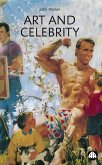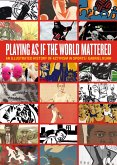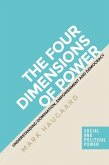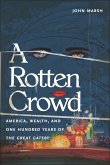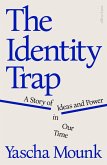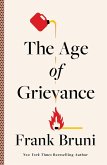"Cullen's strength comes from his understanding of how the different strands of American society intertwine in imaginative, unpredictable ways ... The shape and vitality of pop culture's next era will depend, at least in part, on commentators like Cullen."
-Washington Post Book World
"A thoroughly engaging look at American culture ... Cullen's articulate prose is spiced with wicked wit and he loves a good story ... Demonstrates a sophisticated understanding of complex cultural forces."
-Publishers Weekly
"Reflecting both the strengths and weaknesses of an unusually dynamic area of historical scholarship, The Art of Democracy is one of the best surveys of the history of American popular culture."
-Journal of American History
"An exceptionally well-written and engrossing introduction to the nonelitist art forms of American popular culture ... Highly recommended."
-Library Journal, starred review
"Should be kept on hand to restore our faith in the things that matter to us."
-American Studies
Popular culture has been a powerful force in the United States, resonating within the society as a whole and at the same time connecting disparate and even hostile constituencies. The novels of the late 18th and early 19th centuries, the theater and minstrel shows of the mid-19th century, movies and the introduction of television and computers in the 20th century are the building blocks that Jim Cullen uses to show how unique and vibrant cultural forms overcame initial resistance and enabled historically marginalized groups to gain access to the fruits of society and recognition from the mainstream.
This updated edition contains a new preface and final chapter which traces the history of contemporary computing from its World War II origins as a military tool to its widespread use in the late 20th century as a tool for the masses. Cullen shows how the computer is reshaping popular culture, and how that culture retains its capacity to surprise and disturb.
The highly acclaimed first edition of The Art of Democracy won the 1996 Ray and Pat Brown Award for "Best Book," presented by the Popular Culture Association.
-Washington Post Book World
"A thoroughly engaging look at American culture ... Cullen's articulate prose is spiced with wicked wit and he loves a good story ... Demonstrates a sophisticated understanding of complex cultural forces."
-Publishers Weekly
"Reflecting both the strengths and weaknesses of an unusually dynamic area of historical scholarship, The Art of Democracy is one of the best surveys of the history of American popular culture."
-Journal of American History
"An exceptionally well-written and engrossing introduction to the nonelitist art forms of American popular culture ... Highly recommended."
-Library Journal, starred review
"Should be kept on hand to restore our faith in the things that matter to us."
-American Studies
Popular culture has been a powerful force in the United States, resonating within the society as a whole and at the same time connecting disparate and even hostile constituencies. The novels of the late 18th and early 19th centuries, the theater and minstrel shows of the mid-19th century, movies and the introduction of television and computers in the 20th century are the building blocks that Jim Cullen uses to show how unique and vibrant cultural forms overcame initial resistance and enabled historically marginalized groups to gain access to the fruits of society and recognition from the mainstream.
This updated edition contains a new preface and final chapter which traces the history of contemporary computing from its World War II origins as a military tool to its widespread use in the late 20th century as a tool for the masses. Cullen shows how the computer is reshaping popular culture, and how that culture retains its capacity to surprise and disturb.
The highly acclaimed first edition of The Art of Democracy won the 1996 Ray and Pat Brown Award for "Best Book," presented by the Popular Culture Association.
Dieser Download kann aus rechtlichen Gründen nur mit Rechnungsadresse in A, D ausgeliefert werden.



